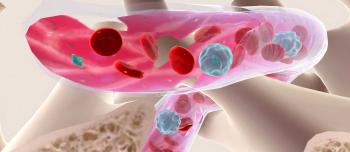UniQure announced new data from an ongoing phase I/II clinical trial of AMT-060, one of its proprietary gene therapy technologies, to treat patients with hemophilia B (factor IX deficiency). UniQure is an Amsterdam-based company specializing in developing gene therapies to treat rare conditions, such as central nervous system disorders, liver/metabolic and cardiovascular diseases. The data were presented at the 58th Annual Meeting of the American Society of Hematology (ASH), held December 3-6, 2016, in San Diego, CA.
UniQure’s hemophilia B technology employs adeno-associated viruses (AAV). These small viruses, which do not cause disease and typically produce mild immune responses, are used as vectors (delivery vehicles) to introduce a functioning factor IX (FIX) gene into the liver cells of patient’s with hemophilia B. The goal of the trial is to trigger long-term FIX protein production through a single administration of the therapy. This could dramatically reduce the frequency of bleeding episodes in people with hemophilia B.
The trial divided 10 people with hemophilia B into two groups: five received a low-dose intravenous administration of AMT-060 and five received a considerably higher dose. The new data include up to 52 weeks of follow-up from the low-dose group and up to 31 weeks of follow-up from the high-dose group.
According to a UniQure press release, the new data from the high-dose group showed a dose response indicating a significant improvement in disease state in all five patients. This prompted the discontinuation of precautionary FIX infusions in all four patients who had previously required chronic replacement therapy. To date, only one spontaneous bleed was reported after discontinuation of prophylactic FIX therapy. In addition, all five patients in the low-dose group whose bleeds were previously uncontrolled despite being managed with prophylactic therapy, continue to maintain “robust, constant and clinically meaningful” levels of FIX activity for up to 52 weeks post treatment, with a cessation of spontaneous bleeds in the last 14 weeks of observation.
“The data from this ongoing study demonstrate clinically significant and sustained increases in FIX activity, substantial reductions in FIX replacement usage and a near cessation of spontaneous bleeding episodes,” said Professor Frank W.G. Leebeek, MD, PhD, of the Erasmus University Medical Center in Rotterdam, the Netherlands. “Importantly, at both doses evaluated, AMT-060 appears to be safe and well-tolerated with no loss of FIX activity, no activation of T-cell response and no development of inhibitors for any of the 10 patients in the study.”
Source: UniQure press release dated December 3, 2016





